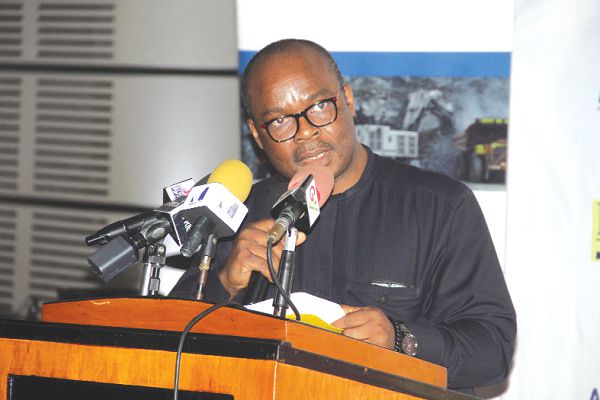
BoG revokes licences of 347 microfinance companies; Only 137 now in good standing
The Bank of Ghana (BoG) has revoked the licences of 347 insolvent microfinance companies due to liquidity challenges.
Out of the number, 192 were insolvent but in operation while 155 had ceased operations.
Advertisement
This latest action by the BoG leaves the country with only 137 microfinance companies in good standing out of the almost 566 which existed previously.
The central bank has consequently appointed Mr Eric Nipah of PriceWaterHouse Coopers as the receiver for the specified institutions in line with section 123 (2) of Act 930.
A source at the BoG told the Daily Graphic that the action by the central bank was to help sanitise the microfinance sub-sector that had been hit by liquidity challenges.
“We have received the GH¢900 million to begin the clean-up of the troubled microfinance sub-sector but every claim by depositors will have to be validated”.
“If we do not tackle the challenges in the microfinance sub-sector quickly, the entire financial system will be badly affected. So we are doing this to protect the stability of the financial system and to save affected depositors,” the source added.
Savings and Loans
The dwindling fortunes in the microfinance sector forms part of a GH¢7 billion debt crisis that has hit a large sector of the deposit-taking non-bank institutions, including savings and loans companies in the country.
The Governor of the BoG, Dr Ernest Addison, said at a Monetary Policy Committee (MPC) news conference in Accra that the magnitude of the resources needed to embark on the entire reforms of the deposit-taking, non-bank sector was so large and had to be approached in phases.
A similar exercise with the universal banks, which ended in December last year, cost the country almost GH¢11 billion, and it is feared that plans to replicate it on non-bank financial institutions (NBFIs) will also prove costly for the country.
“I am not sure we have the budgetary resources to undertake a clean-up of this magnitude,” Dr Addison said.
Decision
A press release by the central bank in Accra yesterday, stated that the revocation of the licences of the microfinance companies was done pursuant to section 123 (1) of the Banks and Specialised Deposit-Taking Institutions Act, 2016 (Act 930), which required the Bank of Ghana to revoke the licence of a bank or Specialised Deposit-taking Institution (SDI) where it determined that the institution was insolvent or likely to become insolvent within the next 60 days.
According to the BoG, “the revocation of the licences of these institutions is to get rid of insolvent and dormant institutions that have no reasonable prospects of rehabilitation and have denied depositors access to their deposits, which constitute a threat to the stability of the financial system.”
“To salvage depositors’ funds, the Government of Ghana has made funds available to enable the Receiver pay depositors, after their claims have been validated”.
“And in line with the hierarchy of creditor claims set out under Act 930, other creditors of the failed institutions will be settled by the Receiver on validation of their claims and to the extent that the Receiver is able to realise value from the remaining assets of these institutions,” the statement added.
Distressed figures
Currently, out of the 566 licensed MFIs in 2018, “211 are active but distressed or folded up,” while in the case of 141 RCBs, 37 were active but distressed or folded up, according to a BoG report.
In total, the bank estimates that, 272 out of the 707 institutions in the sub-sector, representing 38.5 per cent, are at risk.
According to the release, many of the licensed microfinance companies began to show signs of distress from 2014 as a result of severe undercapitalisation, and high cost of operations largely from high and unsustainable interest rates offered to depositors.
Others also undertook poor lending and investment practices, leading to inordinate losses, diversion of customer deposits into private, unprofitable and speculative ventures, general non-compliance with prudential norms, poor corporate governance, weak internal controls and fraud.
Failed attempts
Attempts by the central bank to get the affected institutions and their shareholders and directors to rectify the deficiencies yielded no results, the release added.
Consequently, the financial position of those institutions continued to deteriorate, leading to their insolvency with majority of them ceasing operations and closing their offices with depositors’ funds locked up.
Those that could not close their offices were also unable to pay their depositors, which placed a substantial amount of depositors’ funds at risk.
The release further stated that due to the risks the microfinance institutions posed to the entire financial system, there was the need to protect depositors and so the BoG had to intervene to sanitise the sector.
The central bank has, therefore, assured the public that it has put in place measures to ensure that the existing institutions remain safe and sound by ensuring they comply with relevant prudential norms in the sector.



